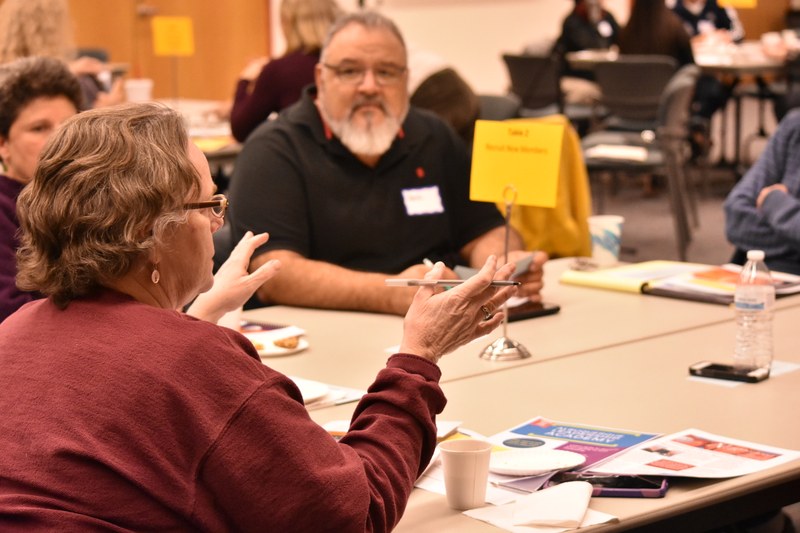
Best Practices to Prevent Conflict
Conflict is a state of disagreement, opposition, contention, competition, or tension between individuals or groups of people.
This is the first article in a series on collaboration and conflict resolution. Read the introduction to the entire series.
It is a predictable condition in the human experience at every level and in every culture in families, neighborhoods, communities, churches, workplaces, societies, and the world. Although it can be very destructive, there is often a hidden, constructive potential in conflict. Therefore, it should not be feared, but respected and understood. What practices can you develop in your neighborhood association that can help prevent conflict?
- Keep Meetings Respectful: You can organize and run meetings that are respectful and follow positive behavioral guidelines that treat everyone fairly. (See Article 8 & Article 9.)
- Make Personal Connections: Take time to introduce yourself and make a simple, positive link with others. Use their name. It is surprising and true that something as small as this encourages respectful relations.
- Avoid Surprises: People hate surprises more than they hate bad news. Keep people informed and contact them before doing something that might affect them. When you get input before acting, you have a chance to prevent strong reactions by upset people.
- Treat Different Perspectives as Valuable: Differences in age, ethnicity, gender, education, and years in the neighborhood can influence how people see the issue. When early discussion of an issue acknowledges different views, this acceptance and understanding can open the way for intelligent compromise or a creative solution instead of a conflict.
- Remember Common Ground: When differences emerge, it is easy to narrow the focus to the disagreement. It helps prevent unnecessary conflict to highlight what is shared and jointly agreed upon as part of the conversation. This provides a sense of balance and proportion in the discussion of the differences.
- Build Connection Through Gratitude: Appreciation and recognition of positives is like money in the relationship bank account. If you have previously demonstrated your good will toward a person and acknowledged them for something you liked, this gives you an opportunity to disagree or point out something to them without triggering a negative reaction leading to conflict.
- Address Problems Candidly: When some problem is ignored that bothers you or other members of your group, it can grow and become harder to deal with over time. Avoiding conflict will ultimately make the conflict harder to deal with. Be direct and respectfully address issues while they are still small.
- Simple, ‘No-Frills’ Respect: Although others need to earn our full respect, it is important to offer others a basic level of respect because they are human beings. Perceived lack of simple respect or disrespect offends and provokes negative reactions that generate conflict. Therefore, always offer simple respect. Always insist on simple respect in meetings. This reinforces civility in the neighborhood. (See Article 8)
- Avoid Gossip and Backbiting: It is easy to get drawn in to complaining about or speaking negatively about someone who is not present. This common habit contributes to an environment where disagreements and conflicts are addressed indirectly and therefore given an opportunity to grow. Many conflicts can be prevented by talking directly to the neighbor with whom you have the concern.
- Calmly Listen to the Heart of the Concern: If a neighbor is unhappy, upset, or aggrieved, tell them you want to understand and really hear them out. When you can remain calm without becoming offended or defensive, most people will become less angry and then become able to listen to your response. This natural de-escalation opens the door to a better conversation to explore the needs to be met and the options available.
- Make Time Your Ally: Conflict usually increases when the pace of the communication accelerates because the exchange is all reaction, zero listening, and zero thinking. Slow down, check out your understanding of what was said. Recognize that it might be wise to take a break, go away to consider the situation, and come back together at an agreed upon time to speak again.
- Use an Impartial Third Party: When direct conversation only seems to escalate the situation, reach out to someone who has some objectivity and skill who can ‘hold a space’ for a respectful, productive exploration of the issues. Often, this is a trained mediator with no knowledge of the people or the issue. Sometimes, another neighbor who is thoughtful, a good listener, and doesn’t have ‘a dog in the fight’ can informally act as a mediator. Remember, the City offers free mediation services!

